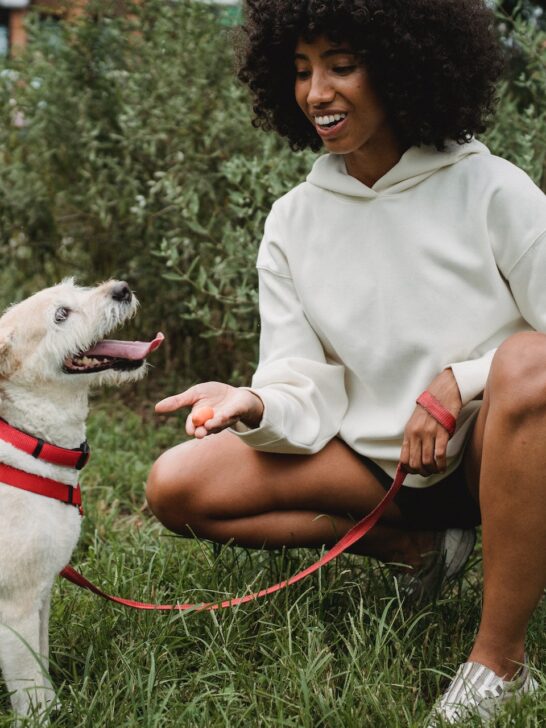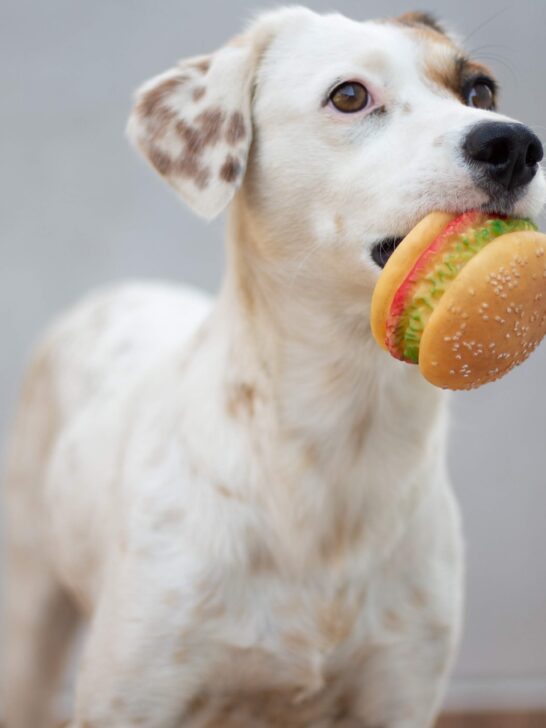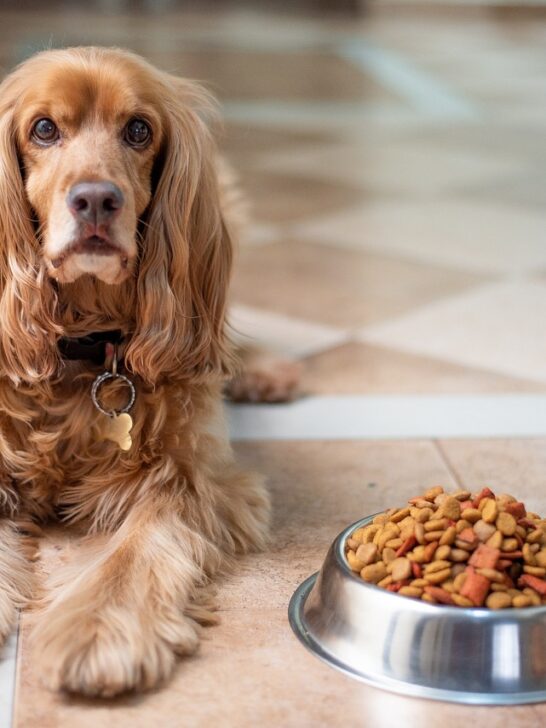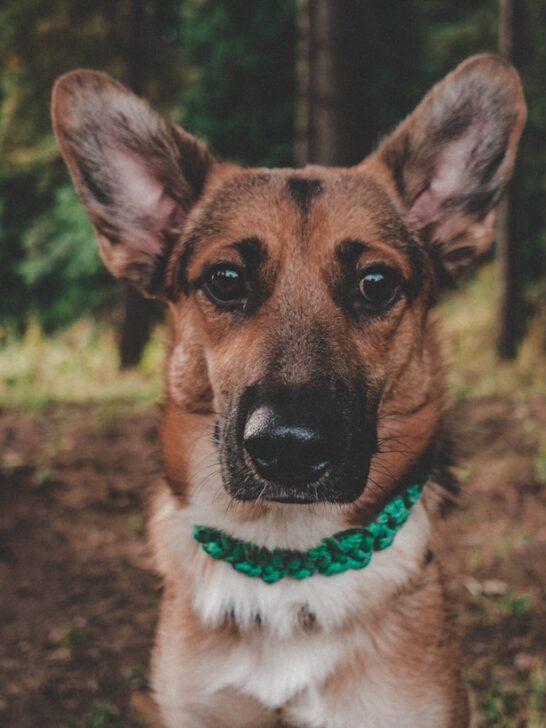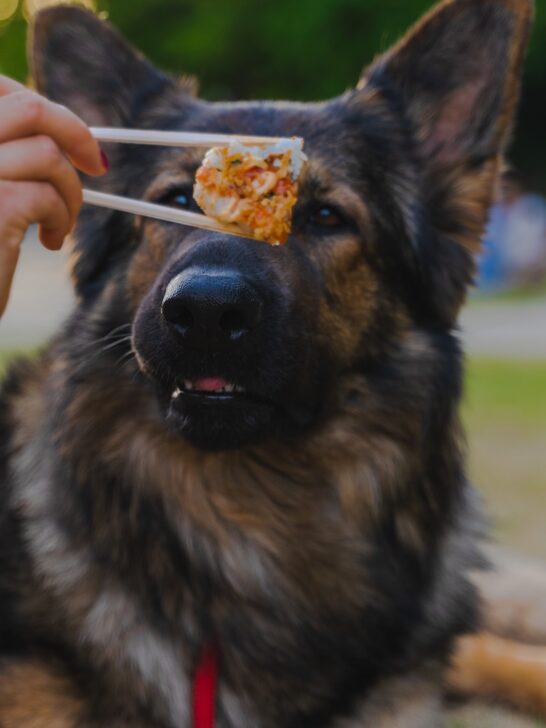Is It Safe To Feed Raw Meat To A German Shepherd? Things To Keep In Mind
Over the years, there has been a lot of speculation about the benefits of a raw meat diet.
Many believe that raw meat can help dogs achieve shinier coats, healthier skin, and have higher energy levels.
These are just some of the advantages that are said to accompany such a diet.
But is it the same case when it comes to feeding German Shepherds? Today, we are going to find out.
Even when reading the various health benefits raw meat can achieve, it’s still important to do a little bit of research to ensure it is completely safe for your dog to consume.
When it comes to feeding raw meat to your German Shepherd, it is safe. However, a range of factors determines how healthy the meat actually is.
The raw meat must be fresh and thoroughly washed. As with all dogs, a German Shepherd’s gastrointestinal system has evolved to digest raw meat.
Therefore, they can safely consume the meat and not become adversely affected by the bacteria lurking inside it.
While humans must cook meat to avoid illnesses, dogs are not as fussy. They don’t mind if meat is raw or cooked and neither do their bellies.
In fact, most dogs would prefer meat in its rawest form.
However, there are some precautions that you need to follow and take into account before feeding your German shepherd any raw meat.
Today, we are going to discuss the benefits and drawbacks of feeding raw meat to your German shepherd.
We will study how much you should feed them and any substitutes for raw meat that your dog will love just as much.
Without further ado, let’s find out some of the benefits of feeding raw meat to your German Shepherd.
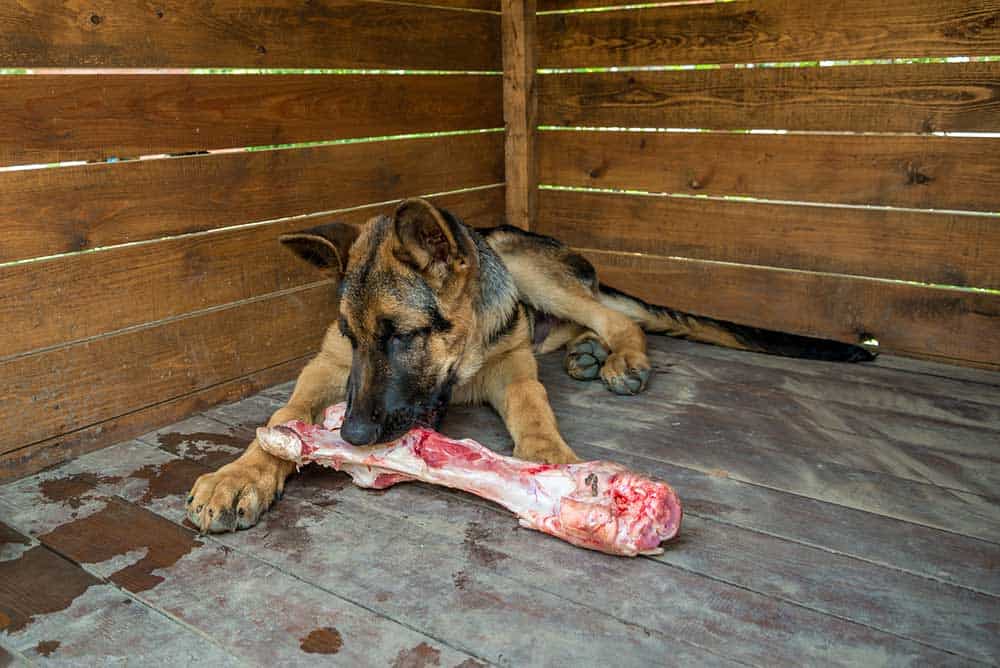
Benefits of Feeding Raw Meat to your German Shepherd
As we touched upon in our introduction, there are a range of benefits from feeding raw meat to your dog.
As long as you follow proper precautions, then raw meat can help your dog’s gastrointestinal system.
Here are some of the main benefits:
- Cleaner and stronger teeth
- Fresher breath
- Improved digestion
- A shinier and healthier coat
- Healthier skin
- Improved mobility, especially in older dogs
- Improved liver health
- Improved bowel health
- An increase in energy and stamina levels
- A healthier and improved immune system
- Fewer allergies
- Less chance of becoming overweight or obese
- Smaller stools that are not as smelly
Those who advocate a raw meat diet believe the high-fat content is what helps a dog’s coat become shinier.
If there is not enough fat in a dog’s diet, their coat can become unsightly while too much fat with not enough protein can cause mild anemia.
However, this must be part of a balanced diet. Just raw meat alone will not be beneficial to a German shepherd’s health.
The Gastrointestinal System of a German Shepherd
As their name suggests, German shepherds originated in Germany in the late 1800s.
Descending from wolf ancestors, a German Shepherd’s characteristics, personality, behaviors, and preferences are ingrained in them from a long time ago.
While they were bred to be working dogs on farms, it’s through their ancestry that they have become the dogs we love today.
Because they have descended from wolves, their gastrointestinal system (GI) can support raw meat.
Wolves eat raw meat from the day they are born and their gastrointestinal systems can withstand this meat without any health issues.
The gastrointestinal system of a wolf is so strong that it can consume rotting meat without any harmful side effects.
The GI system of a wolf and German shepherd is shorter than that of a human’s. Therefore, it allows food to pass through much more efficiently.
Because the food moves through the digestive system much quicker in wolves and dogs, any bacteria and viruses that linger in food have less chance of affecting the body.
The stomach acid of wolves and dogs is also extremely strong.
This breaks down food very easily and allows wolves, in particular, to eat just about anything they want.
Being a direct descendant of wolves, a German shepherd’s gastrointestinal system is set up in the same manner.
Their short GI system and powerful stomach acids allow these dogs to eat raw meat without becoming seriously ill.
If a dog was left out on the streets to fend for itself, it would not be picky about what it eats.
Just about everything is seen as a potential meal by a stray dog and even after eating scraps of raw meat or rotting meat, their health usually remains unaffected.
This is simply down to mother nature.
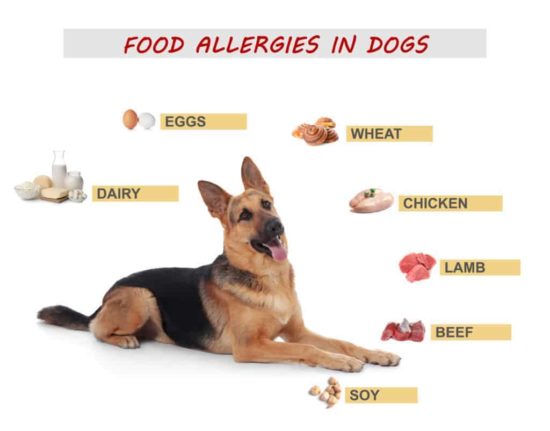
Is it safe to feed all kinds of raw meat to your German shepherd?
So, knowing that German shepherds have a tolerant stomach thanks to their wolf ancestors and genetic build, is it safe for them to eat all types of raw meat?
The answer is, yes, for the most part.
While most raw meat is safe for a German shepherd to consume, we advise you not to feed your pet any raw meat that you wouldn’t cook and eat yourself.
We suggest following the same guidelines you would use when choosing and cooking meat for you and your family.
Yes, a German shepherd may have stronger stomach acids than us but they are not wolves.
Domesticated animals can sometimes have weaker gastrointestinal systems due to various factors such as genetics.
Ensure that you inspect the expiration date of any meat you are considering feeding your dog. If the date has passed, do not feed it to your pooch.
This can cause stomach upsets and a messy floor.
Let’s take a look at some of the risks associated with raw meat when it’s fed to a German shepherd.
The Risks of Feeding Raw Meat to your German Shepherd
A number of problems can arise when a German shepherd consumes raw meat. Unfortunately, the risks can often outweigh the potential benefits.
Here are some of the main dangers that are associated with raw meat:
Salmonella
Unlike humans, many dogs will test positive for salmonella no matter the food they eat.
It is simply a normal part of their gastrointestinal flora and dogs naturally excrete it in their feces as well as their saliva.
If you or anyone you know has had salmonella, it can be a serious illness.
Different strains of this bacteria can cause side effects for 4 to 7 days in most cases, with symptoms usually being:
- Diarrhea
- Stomach cramps
- A fever
In the majority of cases, humans get salmonella from ingestion or handling dry foods.
Contrary to popular belief, the ingestion and handling of uncooked meats isn’t the main cause of salmonella.
The main salmonella threat is to you and not your German Shepherd. Regardless of the food you feed to your dog, it is highly likely that it already carries a strain of salmonella.
Those who are at most risk from salmonella are those who have a weakened or compromised immune system.
When preparing raw meat for your pooch, you must remember to handle it in the same manner as you would if it was for you and your family.
Thoroughly rinse the raw meat to remove as much bacteria as possible.
Any surfaces such as countertops or bowls that have come into contact with raw meat must be disinfected to reduce any risk of salmonella occurring.
The same goes for your dog’s food bowl. This should be washed and disinfected thoroughly after your dog has eaten raw meat from it.
Just like fighting off a virus, you should wash your hands for the same duration with soap and warm water after handling any raw meat as well as before eating.
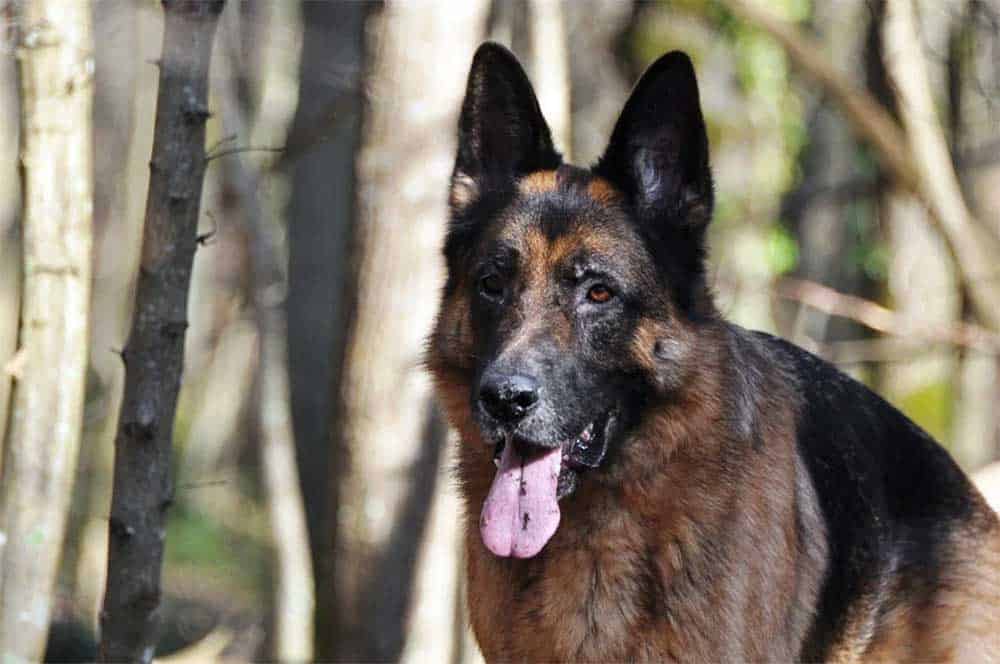
Toxoplasmosis
Toxoplasmosis is caused by protozoa known as toxoplasma gondii. This is a parasite that can have some sort of effect on just about every mammal on Earth.
It is actually found to be alive in up to 65% of people around the world. In the United States alone, it is thought to affect over 40 million people.
On the whole, if someone has toxoplasmosis but has a healthy immune system, they will never show any symptoms.
Those who are at most risk include pregnant women and individuals with compromised immune systems.
Infection for this protozoa occurs when raw meat is consumed.
The most common meats that can cause this include pork, lamb, venison, oysters, mussels, and clams.
Infected feces can also cause some infections as well as not washing your hands properly after gardening or eating unwashed fruits and veggies.
Toxoplasmosis can be avoided, however. By freezing meat for 24 hours, this can significantly reduce and even prevent these infections from occurring.
Just remember to thoroughly disinfect all surfaces that the raw meat has come into contact with afterward.
Trichinosis
This parasitic disease is usually caused by eating undercooked or raw pig and wild game that is infected with a parasitic worm known as larval trichinella.
The good news is that the larvae from these worms can be killed off through heating, freezing, or irradiating (radiation exposure) the meat.
However, irradiation has to be carried out in government premises that have x-rays, gamma rays, and electron beams.
If you go down the freezing route, the trichinella can only be killed if the raw pork is frozen for 3 weeks. Only then should it be fed to your German shepherd.
GI (gastrointestinal) parasites
These unpleasant parasites (not that any parasites are pleasant) include tapeworms, hookworms, roundworms, and coccidia.
Such organisms tend to be found inside the gastrointestinal tract of animals.
Therefore, you should not feed the gastrointestinal tract of any animal to your German shepherd. Doing so will prevent your pooch from acquiring any of these GI parasites.
The meat you feed your dog should be USDA (U.S. Department of Agriculture) inspected to ensure there is no risk of contracting these parasites.
The tricky part is if your dog kills an animal and begins to eat it.
German shepherds are known to do this so you must be vigilant and make sure they do not consume the animal’s gastrointestinal tract.

Food poisoning
While raw meat is generally safe for dogs, the rancid kind can cause severe food poisoning. If the meat is spoiled, it generally contains endotoxins.
These can kill just about anything that consumes them apart from scavengers that are genetically capable of digesting these toxins.
This may sound horrific but such toxins are important in the wild as a means of population control.
However, the last thing we want is for our beloved German Shepherds to eat these deadly toxins.
You should be extra cautious when inspecting the expiration dates on meat.
If you’re unsure, do the smell test to see if the meat smells bad or has gone off. If it smells off, it’s likely gone rancid and should be thrown out. If you’re unsure, do not take any chances.
Salmon poisoning
As the name suggests, this occurs when your dog is fed salmon or other anadromous fish. These are fish that swim upstream to spawn.
These fish contain a parasite known as Nanophyetus salmincola which, in turn, carries an organism (Neorickettsia helminthoeca).
Fortunately, the parasite is usually harmless.
The bad news is the organism within it can cause salmon poisoning which can produce very harmful effects.
Yet again, you can freeze raw fish meat to kill the parasite and organism within. But this requires a little more care and attention to detail.
To completely kill off these unwanted guests, salmon has to be deep-frozen for 7 days or more. Any less and there is a high risk that your German shepherd will become ill.
Raw meat alternatives
Pet food is a relatively new concept. Until 100 years ago, or so, dogs lived off scraps or leftover meat from their owners.
Commercially produced dog food wasn’t an option until the early 20th century.
Compare this to wolves who have been eating raw meat for millions of years and there is no surprise that their descendants, as in most dogs, can stomach raw meats and other foods that would make a human very ill.
Over the years, dogs have become tolerant of starches such as corn, rice, wheat, and potatoes. However, their digestive systems have not evolved so well.
While dogs can adapt to different diets, it takes a lot longer for their digestive systems to evolve and support different foods.
Adaption is a forced process, not a natural one like evolution.
If you’re looking for a substitute for raw meat, you could try commercially manufactured raw dog food.
Such food that is produced by reputable manufacturers will not contain harmful bacteria or parasites as we discussed above.
In general, there are numerous different methods to ensure dog food contains none of these parasites or bacteria. These include:
- High-pressure pasteurization (HPP) – This process sees meat exposed to very high pressures. The pressurization kills off the microbial bacteria and helps the food become sterile.
- Batch testing – If a food manufacturer doesn’t want to use the pasteurization method when testing for harmful bacteria in food, they will try a batch test instead. This process is the same that the USDA performs when inspecting meat that is sold for human consumption.
If the food is batch tested, it means it has already been inspected by the USDA to check if it is safe for human consumption. It is then checked if it is safe for dogs to eat as well.
This means that the meat is tested twice so it goes through a more thorough inspection than the USDA performs for human food.
- An inspection into the herd’s health where the animal came from – It has been found that stress-free, drug-free livestock that has been cared for properly includes less harmful bacteria. This includes salmonella and E. Coli. If an animal is raised in stressful and inhumane conditions, then there is a higher risk of harmful bacteria affecting a dog or human when consumed.
Therefore, companies inspect different livestock and only purchase cattle or animals from farmers who look after their animals in the best possible and ethical way.
Of course, many would argue that raising animals solely to become meat is unethical in itself but this is a whole other matter.
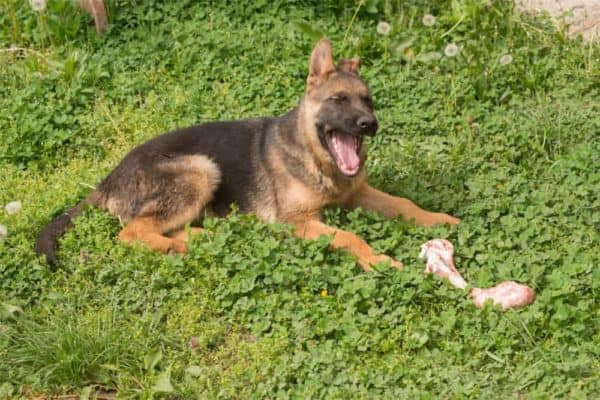
Introducing your German Shepherd to Commercial Raw Food
More and more pet owners are putting their dogs on raw food diets. However, not all commercially produced raw dog foods have a healthy nutritional balance.
Unfortunately, this can cause nutritional imbalances in certain dogs.
The good news is that this can be avoided with a proper diet that has a proper balance of vitamins, antioxidants, trace minerals, and fatty acids.
Your German shepherd should have this healthy balance from birth. Do not wait for your pup to develop a nutritional imbalance before changing their diet!
But, if you do decide to swap your German shepherd’s diet over to commercially made raw food, do not make this switch suddenly.
Your dog needs time to get used to this different food. If the swap is too quick, your pooch can develop gastrointestinal issues such as diarrhea.
Also, do not mix dry kibble with raw dog food as they are metabolized uniquely. Raw dog food is mostly protein while dry kibble is mostly starch.
If these are mixed, then your German shepherd’s digestive system can get confused and result in diarrhea.
Increase the frequency of the dry food gradually over a few days with treats and then try a full meal replacement.
Repeat this process for a few days before you make the full switch from dry kibble to raw dog food.
In Summary
Overall, it is safe for a German shepherd to eat raw meat but it must be thoroughly washed and inspected before doing so. This will limit any risks of your dog becoming ill.
























